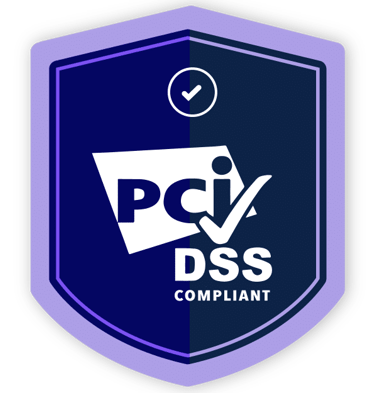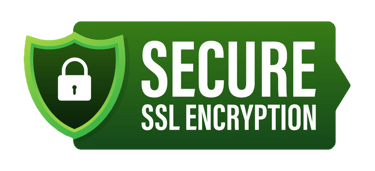The Hidden Costs of Non-Compliance: Why QA Consulting Saves Agencies Money
Discover how non-compliance with Medicare’s home health Conditions of Participation drives up costs—and how quality assurance consulting offsets risk and safeguards agency finances.
In the world of home health care, agencies operate under intense regulatory scrutiny and challenging market conditions. For a Medicare-certified home health agency (HHA), meeting the federal requirements set forth under the Centers for Medicare & Medicaid Services (CMS) is not optional—it is foundational. The Conditions of Participation (CoPs) define the standards every agency must meet to remain in good standing and continue receiving Medicare reimbursement.
Yet many agencies underestimate the hidden costs associated with non-compliance: survey citations, fines, denied claims, reputational damage, increased liability, and lost revenue. In contrast, investing in proactive Quality Assurance (QA) consulting—from internal audits to mock surveys—offers a strong return on investment.
This article explores the hidden cost dimensions of non-compliance and shows why QA consulting is not just a regulatory expense—it is a critical cost-savings measure.
The Scope of Regulatory Risk in Home Health
The Conditions of Participation cover a broad range of operational and clinical areas that every home health agency must manage—from comprehensive assessments and QAPI (Quality Assessment and Performance Improvement) to personnel qualifications, clinical documentation, and infection control.
For example:
Agencies must perform timely and comprehensive assessments of each patient.
They must coordinate and follow physician-approved plans of care.
They are required to maintain a data-driven QAPI program that continuously measures performance and improves care delivery.
They must ensure proper staff qualifications, infection prevention systems, and emergency preparedness programs.
Failing to maintain compliance in any of these areas opens a home health agency to significant risk—and the associated hidden costs can be far greater than the price of compliance itself.
Hidden Costs of Non-Compliance
1. Survey Citations, Penalties, and Corrective Actions
When a regulatory survey finds deficiencies, the agency may receive a statement of deficiencies and be required to develop and implement a Plan of Correction. Some deficiencies rise to a “condition-level” status, which can result in sanctions, payment suspension, or even termination of Medicare certification.
Costs impacted:
Staff time and administrative resources needed to implement corrective actions.
Consultant and legal fees to address deficiencies and re-survey requirements.
Civil monetary penalties and loss of deemed status.
Disruption to daily operations and damage to the agency’s public reputation.
2. Claim Denials and Reimbursement Risk
Documentation errors, incomplete assessments, or missing signatures are all examples of non-compliance that can lead to claim denials or payment reductions. Medicare auditors review whether services were reasonable, necessary, and compliant with the CoPs. If documentation fails to support care, reimbursement is denied.
Costs impacted:
Lost revenue from denied or recouped claims.
Administrative time spent appealing claim denials.
Overpayment recovery actions and audits.
Lost opportunities for growth due to diverted resources.
3. Increased Operational and Administrative Burden
Agencies without a structured QA program often find themselves working reactively instead of proactively. Staff are forced to address compliance problems as they arise rather than prevent them through proper systems.
Costs impacted:
Staff overtime, burnout, and turnover.
Disorganization that leads to missed visits, incomplete documentation, and increased errors.
Managerial time redirected from patient care or business development to crisis control.
4. Insurance and Liability Exposure
Non-compliance can increase legal exposure, especially if it leads to adverse patient outcomes. A lack of proper assessments, supervision, or infection control can result in lawsuits, settlements, and higher malpractice insurance premiums.
Costs impacted:
Legal defense fees and potential settlements.
Increased insurance premiums.
Damage to the agency’s credibility and patient trust.
5. Market Position and Growth Impairment
Referral partners—such as hospitals, physician groups, and managed care organizations—often review survey outcomes and quality data before forming relationships with home health agencies. Agencies with repeated deficiencies or citations risk losing those referral sources.
Costs impacted:
Loss of referral pipelines and partnership opportunities.
Reduced payer rates if outcomes or compliance metrics are poor.
Long-term brand damage that limits competitiveness.
6. Opportunity Cost of Not Having a Proactive QA Strategy
Without QA consulting, agencies miss out on operational optimization and performance insights. Proactive QA not only prevents costly errors but also identifies opportunities to enhance efficiency and staff productivity—improving both patient care and profit margins.
Why QA Consulting Saves Agencies Money
Proactive Compliance Architecture
QA consulting helps agencies build and maintain a solid compliance infrastructure. This includes policies, procedures, and systems that align with the Conditions of Participation. When internal controls are strong, survey findings decrease, and costly last-minute fixes are avoided.
Risk Identification and Mitigation
Consultants perform mock surveys, internal audits, and root-cause analyses to uncover vulnerabilities before state or federal surveyors do. Addressing these proactively prevents condition-level citations and reduces the financial impact of remediation.
Cost Avoidance Through Remediation Planning
If a deficiency occurs, QA consultants guide the agency through corrective actions quickly and effectively. They develop Plans of Correction that not only meet regulatory requirements but also strengthen internal systems, reducing future recurrence.
Operational Efficiency and Process Improvement
Strong QA programs enhance workflow efficiency, improve communication, and reduce duplication. QA consultants help agencies streamline processes so that clinical and administrative teams work in sync—resulting in fewer errors and higher productivity.
Support for Value-Based Payment Models
CMS increasingly rewards agencies with strong performance and compliance records. QA consulting helps agencies transition to value-based care by focusing on outcome measures, patient satisfaction, and quality improvement—all of which affect reimbursement rates.
Reputation Protection and Competitive Advantage
A strong compliance record and clean survey history attract referral partners, payers, and patients. QA consulting ensures agencies maintain the documentation and performance evidence needed to demonstrate reliability and excellence.
Aligning QA Consulting with the Conditions of Participation
Effective QA consulting focuses on the highest-risk CoP areas, such as:
Comprehensive Assessment: Ensuring assessments are completed within required timeframes and accurately reflect the patient’s status.
Care Planning and Coordination: Ensuring all services are ordered, delivered, and documented according to the plan of care.
Quality Assessment and Performance Improvement (QAPI): Establishing measurable goals, data tracking, and continuous improvement activities.
Personnel Qualifications: Verifying licenses, certifications, and competencies for all staff.
Clinical Records and Documentation: Ensuring all documentation is legible, complete, and compliant with the physician’s plan of care.
Infection Prevention and Emergency Preparedness: Maintaining updated plans, training, and documentation.
A QA consultant’s structured review of these elements ensures compliance and minimizes the risk of citations or financial loss.
Return on Investment: Real-World Cost Savings
The financial benefits of QA consulting can be dramatic:
Avoided Citations: A single condition-level deficiency can cost tens of thousands in remediation and lost productivity. Preventing it through consulting pays for itself many times over.
Reduced Claim Denials: Proper documentation and oversight reduce denials, protecting revenue streams.
Improved Efficiency: Streamlined systems save time and improve staff satisfaction.
Enhanced Market Reputation: A clean survey record increases referrals and payer trust, directly boosting income.
Example: A mid-sized home health agency generating $5 million annually could lose 5% in revenue due to documentation-related denials—that’s $250,000. A QA consulting engagement costing $15,000 could prevent those denials entirely.
Best Practices for Engaging QA Consulting
Select experienced consultants who specialize in home health and understand state and federal requirements.
Begin with a baseline audit or mock survey to identify existing compliance gaps.
Create a compliance roadmap that prioritizes high-risk areas and sets measurable goals.
Train all staff on updated policies and compliance procedures.
Integrate QA into daily operations so compliance becomes a culture, not an event.
Conduct periodic audits and use data to guide ongoing improvements.
Use compliance success as a marketing asset—clean surveys and strong QA programs strengthen credibility with referral partners and payers.
Conclusion
Regulatory compliance is not merely a bureaucratic requirement—it’s a strategic necessity. The hidden costs of non-compliance in home health and hospice care can devastate profitability, disrupt patient care, and damage reputation. By contrast, investing in QA consulting transforms compliance from a liability into a competitive advantage.
Proactive QA systems reduce risk, stabilize operations, and enhance quality—ultimately saving money and strengthening patient trust.
For agencies seeking professional guidance to build compliant systems, optimize operations, and maintain continuous survey readiness, HealthBridge provides comprehensive consulting and management solutions. With a proven track record in home health and hospice compliance, HealthBridge helps agencies protect their financial health while delivering the highest standard of patient care.





